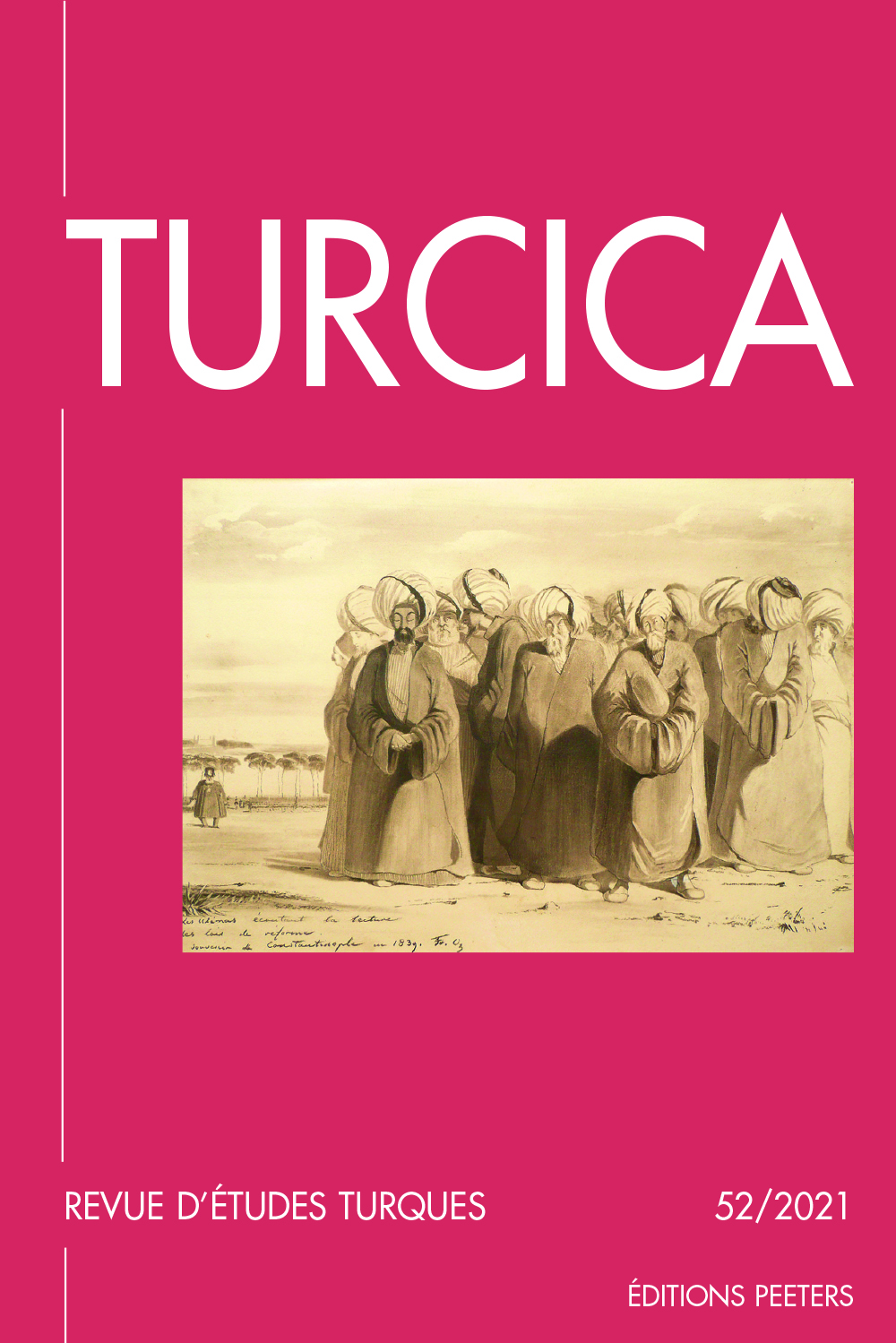 previous article in this issue previous article in this issue | next article in this issue  |

Preview first page |
Document Details : Title: Normands et Turcs en Méditerranée médiévale Subtitle: Deux adversaires 'symétriques'? Author(s): BALIVET, Michel Journal: Turcica Volume: 30 Date: 1998 Pages: 309-329 DOI: 10.2143/TURC.30.0.2004305 Abstract : Michel BALIVET, Normands et Turcs en Méditerranée médiévale?: deux adversaires symétriques? Le XIe siècle voit l’apparition presque simultanée en Méditerranée de deux nouvelles forces politiques, les groupes normand et turc qui jouent désormais un rôle politico-religieux et militaire considérable et assez symétrique. Convertis de fraîche date, respectivement au christianisme romain et à l’islam sunnite, Normands et Turcs sont, les uns contre les autres, les fers de lance de la croisade et du djihâd. Mercenaires et soldats appréciés, bons administrateurs aux ambitions étatiques affirmées, avec des tendances très fortes au cosmopolitisme et au plurilinguisme culturel, les deux peuples réalisent volontiers leurs ambitions politiques au détriment de leur voisin ou employeur byzantin. Le jugement que portent les sources extérieures sur les deux groupes est curieusement très semblable: Normands et Turcs sont, selon les cas, considérés comme des brutes mal dégrossies et dangereuses ou comme les intrépides défenseurs de la vraie religion. On les compare même à l’occasion pour leur réputation d’invincibilité et leur talent administratif et eux-mêmes semblent avoir, malgré les affrontements constants, une certaine estime mutuelle. Symétrie des fonctions politiques, analogie des comportements et interférences culturelles, il est possible de comparer utilement le fait turc et le fait normand en Méditerranée médiévale. Michel BALIVET, Normans and Turks in the medieval Mediterranean area?: two symmetrical adversaries? The eleventh century witnessed the almost simultaneous appearance of two new political forces in the Mediterranean area, Normans and Turks, which henceforth played a role of considerable importance, and rather symmetrical, in the politico-religious and military domains. Both recently converted, respectively to Roman Catholicism and to Sunni Islam. Normans and Turks, fighting each other, were the spearhead of crusade and djihâd. They were estimated mercenaries and soldiers, good administrators with well asserted ambitions to statehood, and with very strong inclination to cosmopolitanism and cultural plurilinguism. The two peoples readily carried into effect their ambitions to the detriment of their Byzantine neighbour or employer. Strangely, the judgement passed by external sources is very similar for the two groups?: Normans and Turks are considered, as the case may be, either as unpolished and dangerous brutes, or as bold defenders of the true religion. Sometimes they are even compared to each other for their reputation of invincibility and for their administrative talent. It seems also that they had a certain mutual respect, in spite of their constant confrontation. It is possible to make a useful comparison between the Turkish and Norman factors in the Medieval Mediterranean history: symmetry in political functions, analogy of the behaviours, cultural interferences. |
 |


